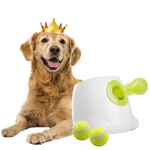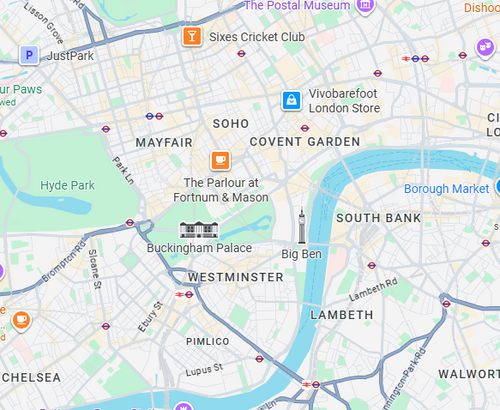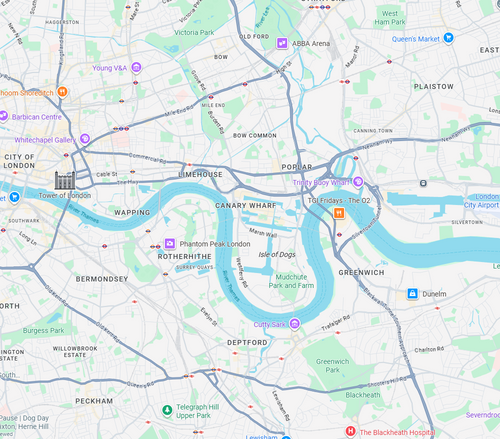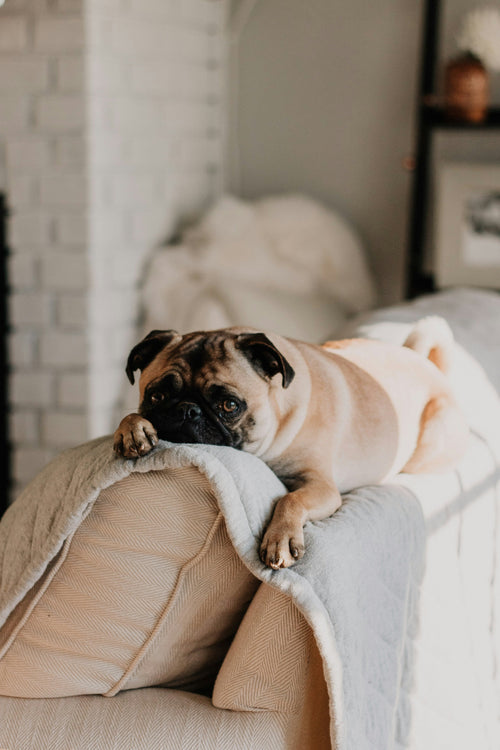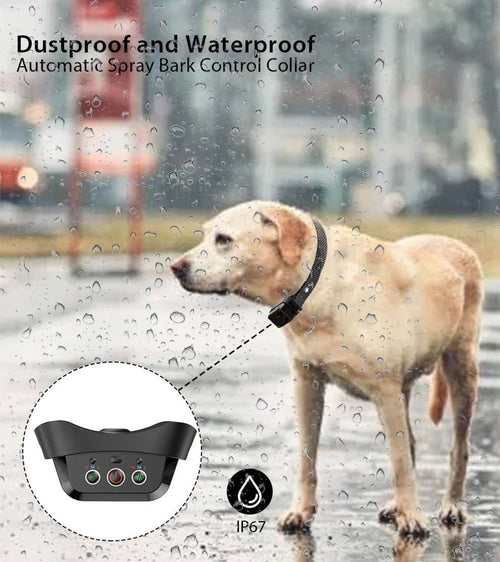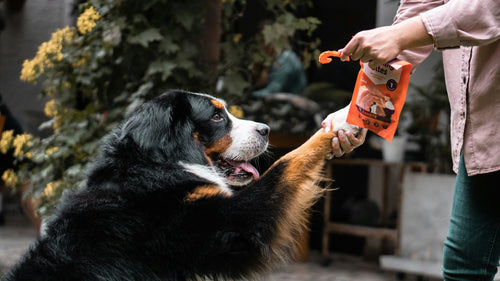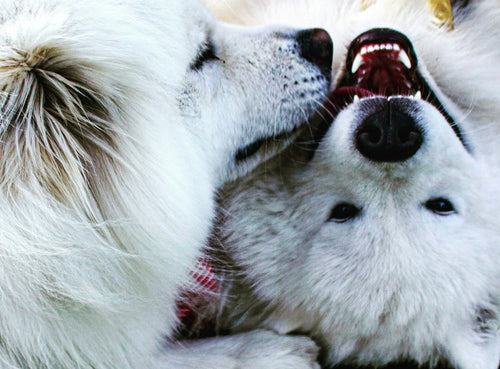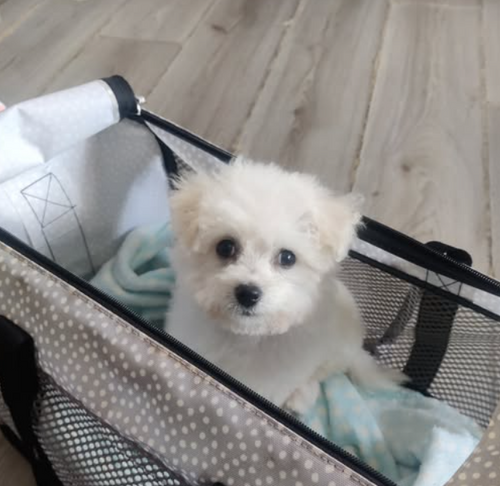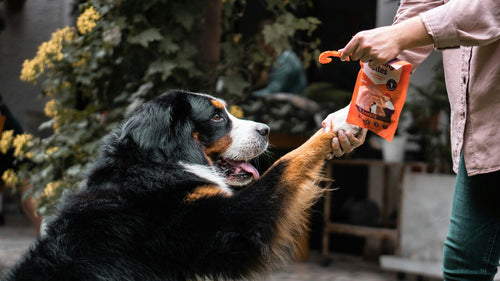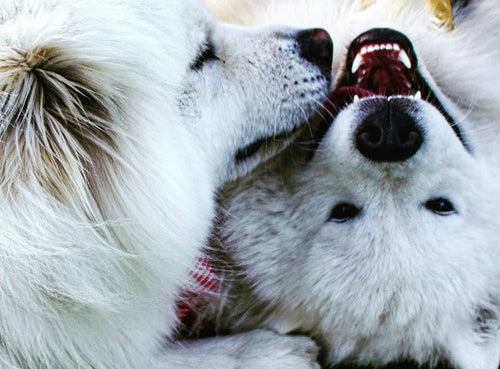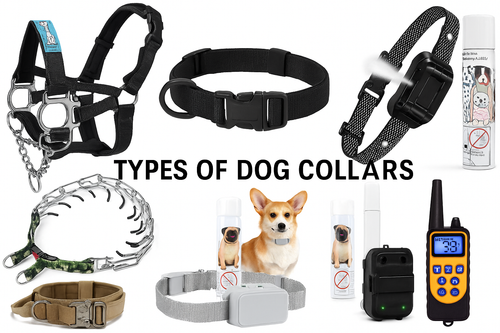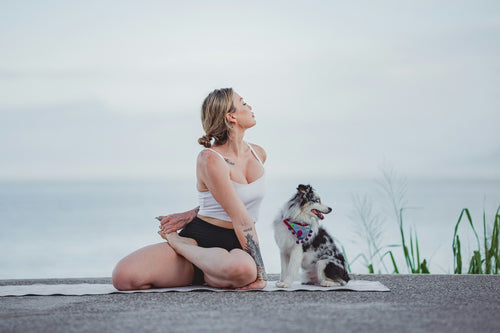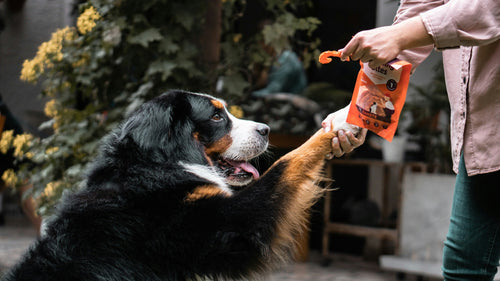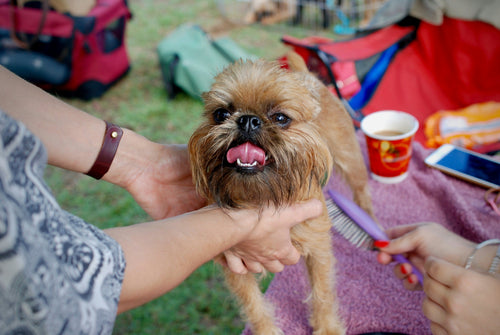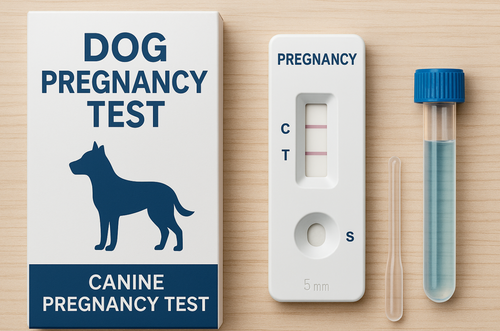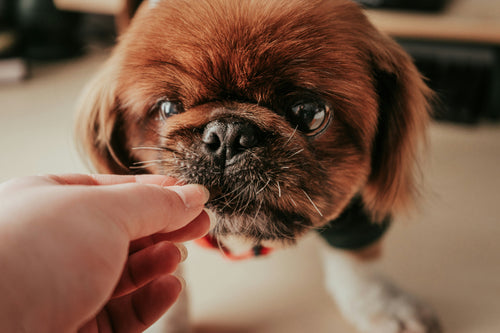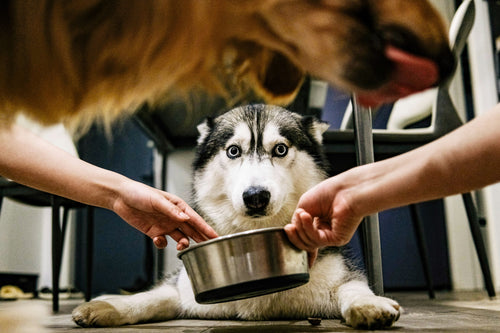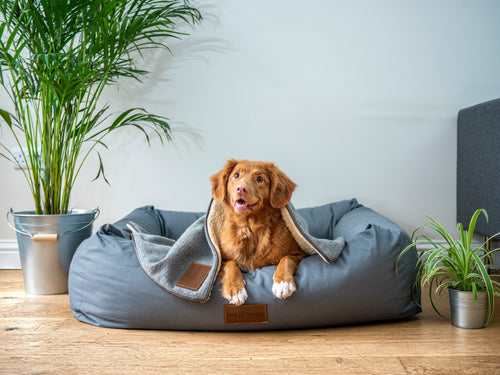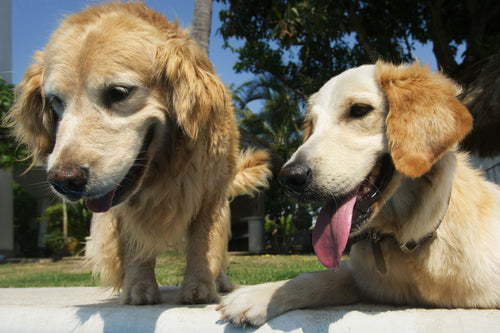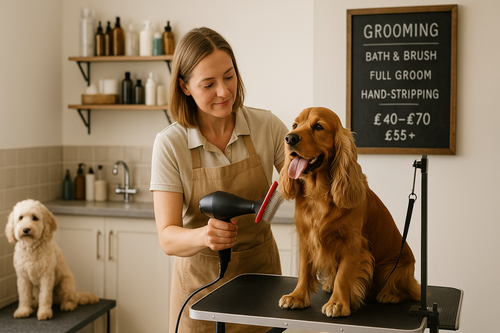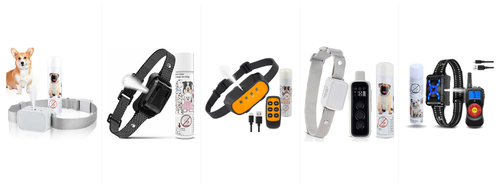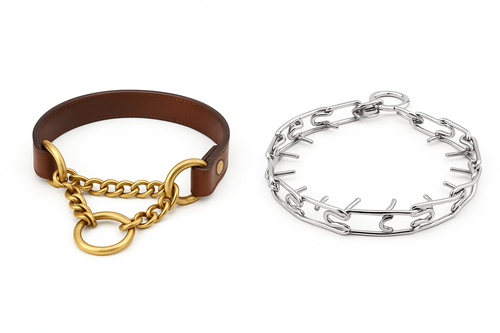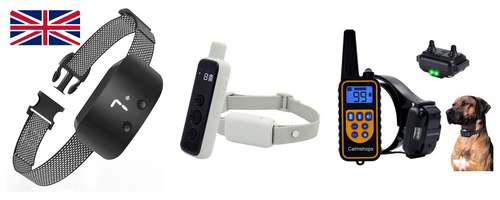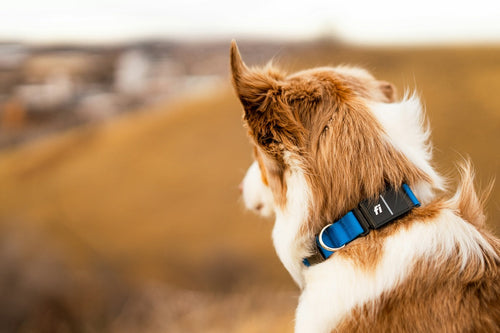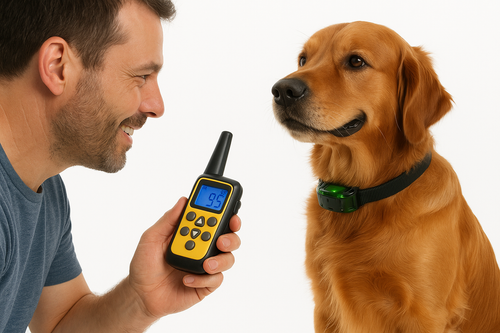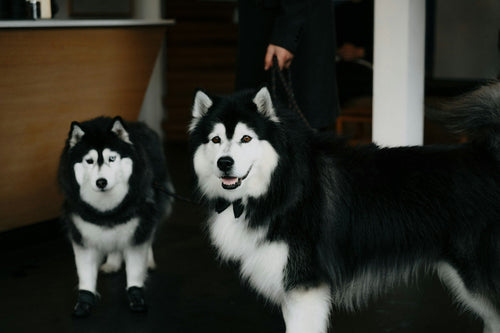Leaving your dog alone is often unavoidable – work, errands, social commitments – life happens. But the question arises: how long is too long to leave your dog alone?
The truth? It depends on the dog. While breed tendencies are helpful guidelines, real-life situations show that many dogs thrive alone with the right preparation.
In this guide, we explore:
-
General time guidelines by age
-
Real-world breed breakdowns (with flexibility)
-
Barking behaviours
-
And tools like the Automatic Spray Bark Collar to manage excessive barking.
How Long Can Dogs Be Left Alone?
| Dog Age | Time Alone (Typical) |
|---|---|
| Puppies (<6 mo) | 2–3 hours |
| Adults (1–7 yrs) | 4–6 hours (some 8+) |
| Seniors (7+ yrs) | 2–6 hours (needs vary) |
However, many well-adjusted adult dogs can stay alone for up to 8–12 hours if:
-
🟢 They have a consistent routine
-
🟢 Get stimulation before/after you leave
-
🟢 Have chews, toys, or calming items
-
🟢 Live in a quiet, low-stress environment
-
🟢 Are crate-trained or have garden access
Let’s explore how this looks breed by breed.
🐾 Dog Breeds: Alone Time, Barking, and Realistic Expectations
1. Labrador Retriever

-
Typical Alone Time: 4–6 hours
-
Real-World Range: Up to 8–9 hours with routine and prep
-
Barking When Alone?: Yes – common if bored
Labs are intelligent, energetic, and highly people-focused. That said, many Labs adapt well to being left alone, especially if you:
-
Tire them out beforehand (walk or play)
-
Provide puzzle toys or a stuffed Kong
-
Use a Citronella Bark Collar to manage barking
🎯 Tip: Set a routine and give them structure. Many owners report Labs managing workday hours just fine with the right care.
2. Cocker Spaniel

-
Typical Alone Time: 2–4 hours
-
Real-World Range: Up to 10–12 hours (like Calmshops’ own dog)
-
Barking When Alone?: Often – sensitive to change
While Cockers are known for separation anxiety, some are remarkably independent when trained. What makes a difference:
-
Morning walk and chew toy
-
A soft bed and quiet space
-
Garden access (ideal!)
-
Calming support like natural treats
💬 True Story: At Calmshops, our cocker spaniel FIGO stays sometimes alone up to 12 hours with no fuss, thanks to consistent routine and prep.
3. French Bulldog

-
Typical Alone Time: 4–6 hours
-
Real-World Range: 6–8 hours
-
Barking When Alone?: Occasionally – usually more whining
Frenchies are more independent than people expect. They love humans but are also happy napping through the day if:
-
They get enough affection before/after
-
Are left with a soft bed and chews
-
The house is quiet and comfy
🔇 Bonus: Frenchies aren’t known for loud barking, making them apartment-friendly. Still, consider a bark collar for reassurance if you're unsure.
4. Border Collie

-
Typical Alone Time: 2–3 hours
-
Real-World Range: 4–6 hours if properly exercised
-
Barking When Alone?: Yes – very vocal and alert-driven
Collies are smart and need jobs. But with the right routine, even these high-energy thinkers can be left alone for longer:
-
Give 45–60 min exercise before leaving
-
Use brain games like treat puzzles
-
Close curtains or keep them away from windows
-
Train barking out with a citronella spray collar
🧠 Top Tip: Mental stimulation is just as important as physical for these clever dogs.
5. Shih Tzu

-
Typical Alone Time: 5–6 hours
-
Real-World Range: 8+ hours if used to it
-
Barking When Alone?: Sometimes, especially at unfamiliar noises
Shih Tzus adapt well to quiet home-alone time. They’re low-energy and don’t demand constant attention – perfect for working owners if:
-
You leave their bed in a quiet room
-
Offer chew treats or calming toys
-
You use white noise or soft music
🌼 Extra Help: For vocal pups, a gentle anti-bark collar may reduce stress-induced yapping.
6. Jack Russell Terrier

-
Typical Alone Time: 3–4 hours
-
Real-World Range: Up to 6 hours with solid routine
-
Barking When Alone?: Yes – they get bored quickly
Feisty and full of personality, Jack Russells need stimulation. But many settle down once their needs are met:
-
Morning run or long fetch session
-
Interactive toys or ball launchers
-
Block their view from triggers (curtains, fences)
-
Anti-bark collar if noise complaints are a risk
🎾 Try: A session with the Mini Ball Launcher before leaving can work wonders.
7. Greyhound

-
Typical Alone Time: 6–8 hours
-
Real-World Range: 8–10 hours with minimal stimulation
-
Barking When Alone?: Rarely – incredibly relaxed
Greyhounds are often misunderstood as high-maintenance. In reality, they are lazy couch potatoes:
-
Leave a soft, warm bed
-
No loud music or bright light
-
Food-stuffed toys to keep them occupied
✅ Perfect breed for solo time: They may barely notice you’ve gone!
8. German Shepherd

-
Typical Alone Time: 3–5 hours
-
Real-World Range: Up to 8 hours with training and structure
-
Barking When Alone?: High risk – territorial and vocal
Shepherds are loyal, alert, and protective. They need:
-
Clear boundaries and training
-
A structured exit routine (to reduce arousal)
-
Remote training collar if barking is disruptive
👮 Bonus Tip: Avoid “guard duty” mentality – don’t leave them near windows or entrances. Use the remote citronella collar if needed.
Signs Your Dog May Not Be Coping

Even if your breed is “okay alone,” always watch for signs of distress:
-
🚨 Excessive barking or whining
-
🚨 Chewing, scratching doors or furniture
-
🚨 Toileting inside
-
🚨 Refusing to eat
-
🚨 Shaking or panting after being left alone
These signs could indicate separation anxiety or boredom – both fixable with training and tools.
Tools to Make Alone Time Easier
✅ Automatic Spray Bark Collar
Stops excessive barking without shock. Releases a light puff of citronella when barking is detected.
👉 Explore Here
✅ Natural Calming Treats
Our Calmdogs Relaxing Chews can be given before you leave to soothe nervous dogs.
✅ Puzzle Toys & Ball Launchers
Keep your dog mentally engaged and tired out before you leave.
👉 See our Mini Ball Launcher
Final Thoughts: Every Dog is Different
Breed guides are useful – but the real indicator of how long your dog can be left alone is your dog. If they’re:
-
Calm before and after you leave
-
Not barking excessively
-
Not showing destructive behaviours
-
Eating and sleeping normally
Then you're doing great — whether you're gone for 3 hours or 12.
With structure, prep, and tools like automatic bark collars, even sensitive dogs can learn to feel secure when home alone.




